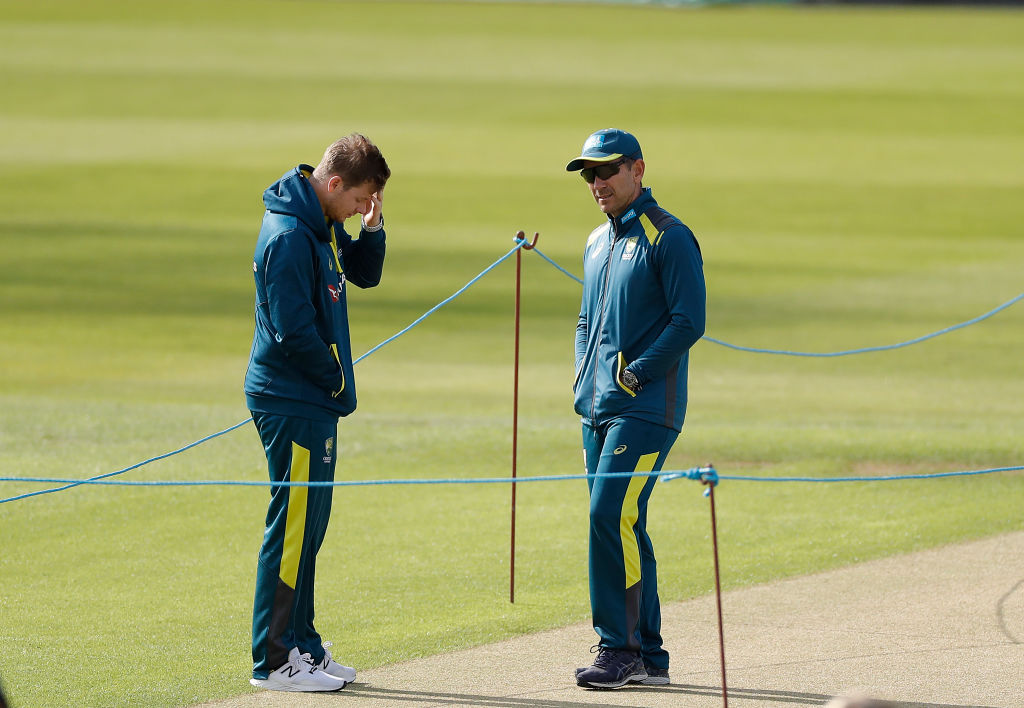People tell me you're too intense, but that's ok, that's me, asserts Justin Langer
Justin Langer has opened up on various topics related to himself and being the coach of a team that has many fierce team members who blend well to produce some great performances. Langer talked about his transition from a cricketer to a coach and how he hid his emotions to keep his composure.

A grafter and a battler, Justin Langer played his cricket in the most intense way possible - never the one to drop guard and in a team that had some of the most belligerent batsmen of the generation, Langer played his cricket in the only he knew - with perseverance and hard work. Often the last to leave the nets and never the one to have a false sense of inevitability around him, Langer had a reputation of his own. He enhanced it further as a coach of the Australian team in what was the worst period thanks to the culture shock they received in Cape Town in March 2018.
"Probably who I am but since I was 21, I've been in the public eye. I played Test cricket early. I've been in this business where you can't afford to show too much emotion. But there's a lot of emotion. Having said that, people used to talk about how much I used to hug Matthew Hayden and how pumped we used to get. This is me, but sometimes you have to put on the mask," Langer told Cricbuzz.
"I say that a lot because there are lots of things going on. But ultimately, I'm just being me and I feel comfortable being me now. People say you're too serious, you're too intense. But that's ok, that's me. Some people will like it, some people will have opinions on it, some people won't but that's ok. If you try and please everyone, you please no one."
When Langer was a player, he had a lot of outside interests like meditation and spending time with himself and understood the importance of even more when he took over the role as the Western Australia head coach. Having a second chain of income would also help cricketers because money dries up with time and Langer advised the same to the current generation of cricketers.
"When I was working at Western Australia, I realized the importance of players having outside interests. When I started, I always worked. I was playing Sheffield Shield for WA and I had a job. I didn't get paid unless I made the first XI which was hard to do. So right until the age of 28 or 29, I was always working. It made me a much more rounded person.
"I couldn't wait to get to training and I couldn't wait to play games of cricket. It's also helped me in my post-playing life to become a coach because I learnt about dealing with different people and the discipline of having to be at work every day. It's the same with the players. At one stage at WA, we had 75 per cent of our guys studying because when you are playing domestic cricket you've got so much time. Even with the internationals, they get paid a lot of money now.
"But what I do know is that once you retire at, say if you're lucky at 30-35, you still have 35 years to work. And money dries up. So you need to have more interests, one for post-playing but two I am convinced it helps your performance because you just love playing the game. We talk about great players and great people. Part of that is becoming well-rounded and learning to deal with people and other issues, not just cricket issues," the former Aussie opener concluded.

Comments
Sign up or log in to your account to leave comments and reactions
0 Comments